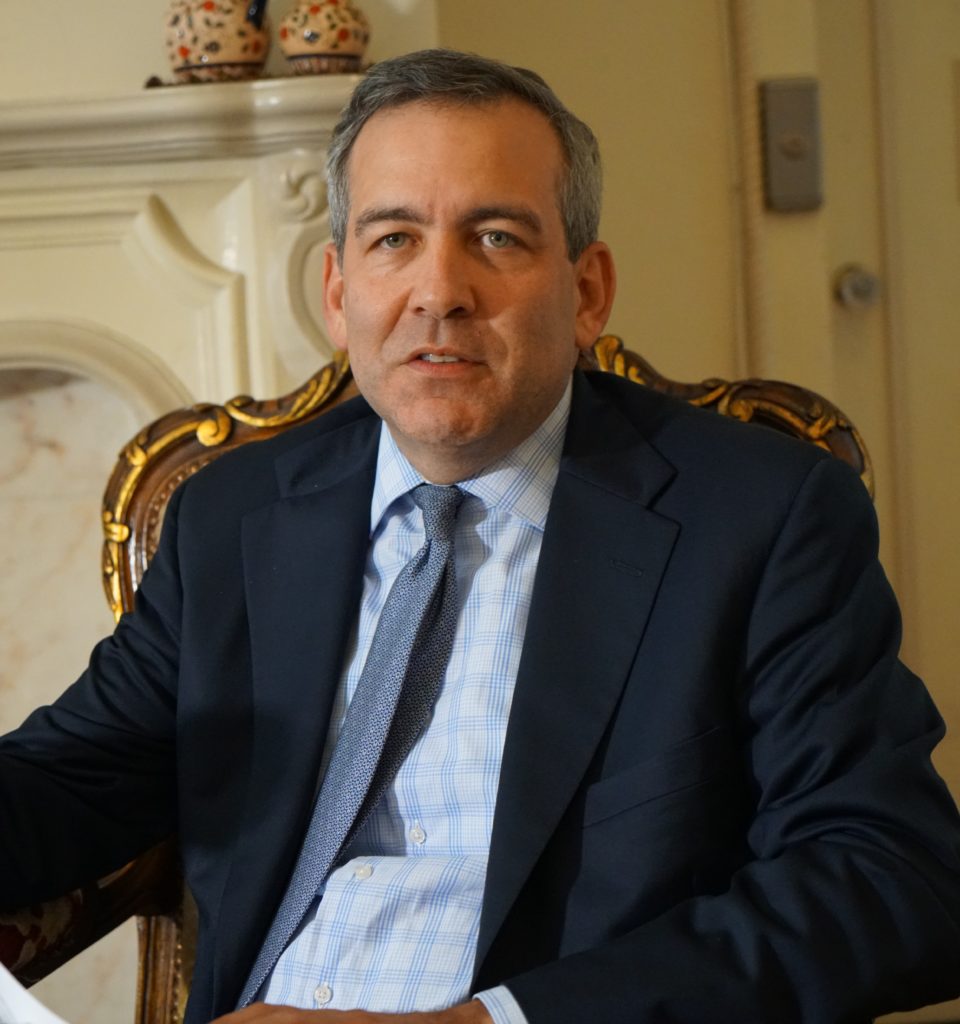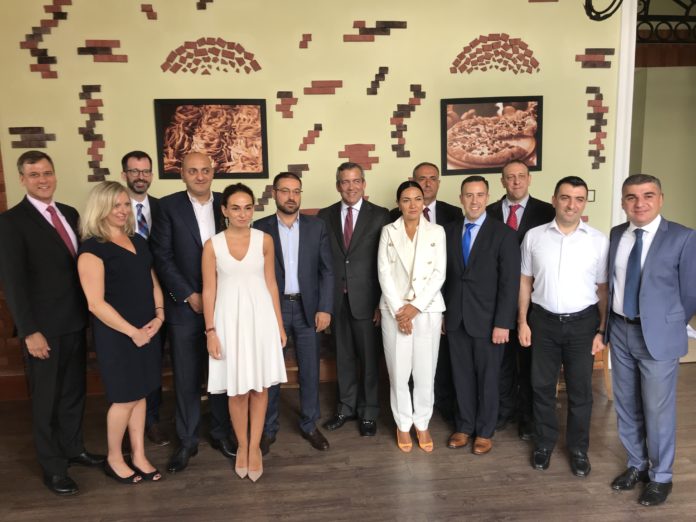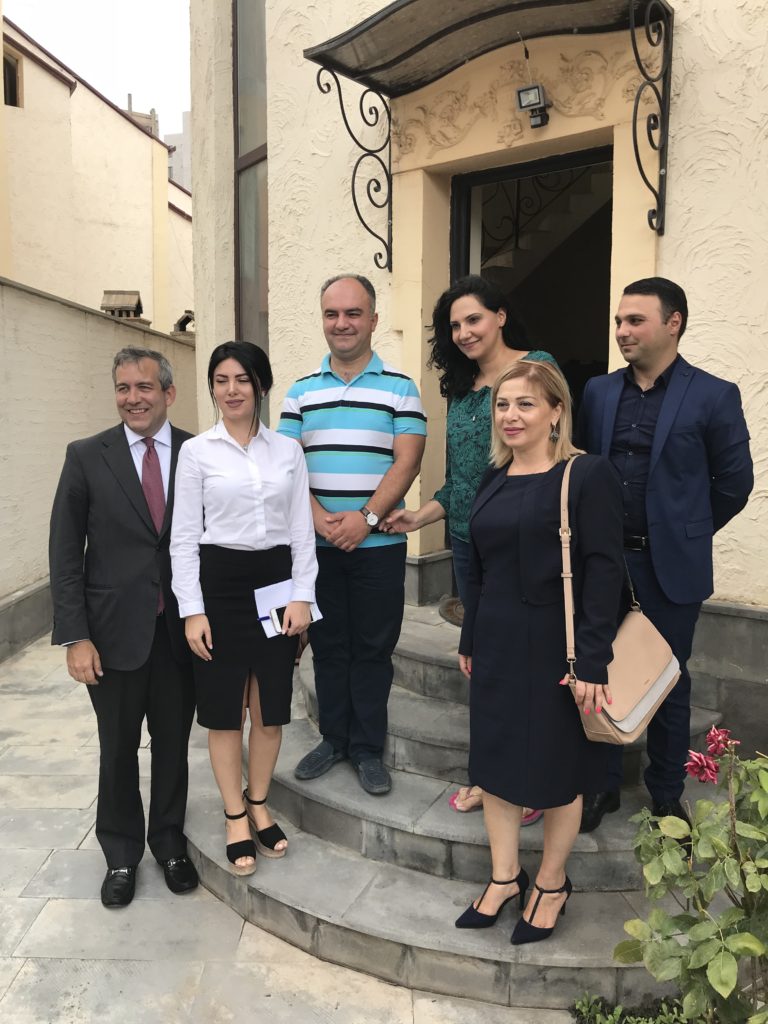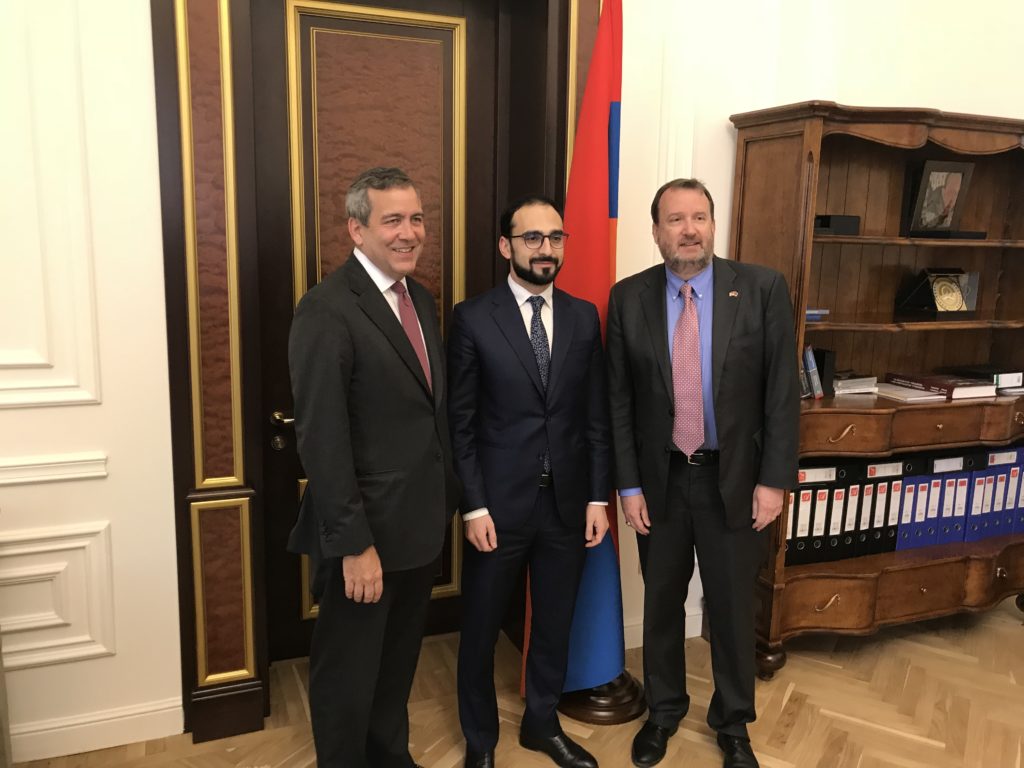WASHINGTON – David Steele Bohigian is a man on a mission, constantly traveling to countries around the globe to promote American values and business investment, along with the free market economic system. On September 18, he briefed members of the Armenian community and various organizations and agencies dealing with US-Armenia trade issues on his recent visit to Armenia as second in command of the Overseas Private Investment Corporation (OPIC) of the United States. The next day he offered a follow-up interview to the Mirror-Spectator at the art deco style OPIC headquarters in Washington.
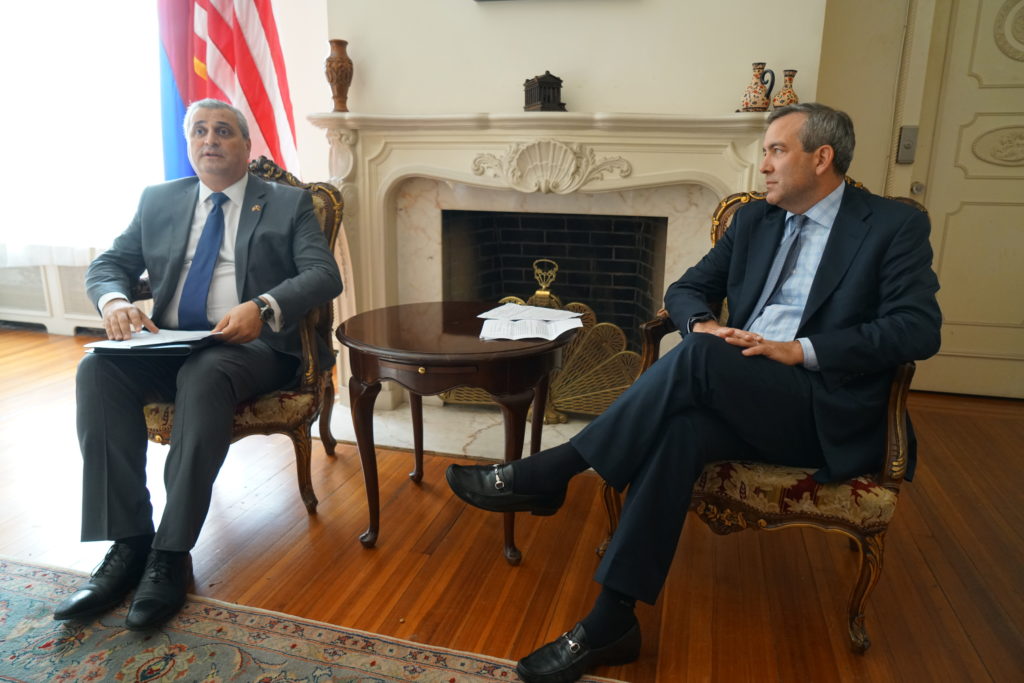
The briefing and the reception which followed was hosted by the Embassy of the Republic of Armenia. Ambassador Grigor Hovhannisian introduced Bohigian and a number of the prominent guests present. Hovhannisian provided the context for the evening when he said, “Since the early days of the Trump administration we are contemplating a shift in paradigm in the type of relationship we are building with the United States, which was previously aid-centered. We are transitioning into a partnership, a trade-centered development… It is important for us to intellectually understand what a small landlocked country like Armenia with limited resources can offer the US, what kind of partnership Armenia can offer the US. The asymmetry is tremendous. This is not a simple type of partnership. The United States is not a country by Armenian standards, it is a continent, it is a universe, so Armenia needs to find its niche and US investors need to find an area of focus, and that is where I think OPIC and some of your colleagues can come in handy.”
Bohigian started by defining OPIC’s objective as to “help advance development goals and US foreign policy in countries around the world.” He said that he thinks of OPIC as the successor of the Marshall Plan which after World War II helped rebuild the economies of Europe. OPIC provides political risk insurance and project finance and supports private equity firms. It operates under the policy guidance of the Secretary of State. Everything that it does provides a profit to the United States government, including over $250 million last year alone.
Bohigian, with his colleagues Carol Danko and John Didiuk (both present at the talk), and others, briefly visited Armenia, Georgia, Azerbaijan and Uzbekistan from August 13 to 17. This trip was, Bohigian said, “part of our outreach to the region to support democracy and support capitalism as opposed to state-owned enterprises.”
At present, OPIC is supporting 32 projects in the three countries of the Caucasus at a total value of over $167.8 million. Of this, the lion’s share goes to Georgia, in which OPIC currently has $138 million invested in 21 projects. It currently has $11 million invested in Azerbaijan and the same amount in Armenia. However, while Armenia has received $88 million in total in the past few decades (including an $18-million loan for the Armenia Marriott Hotel), Azerbaijan received, as of 2015, around $230 million through OPIC. Georgia has received $618 million in toto, and Uzbekistan $231 million.
The six ongoing projects in Armenia include two with the First Mortgage Company, the Microvest Short-Duration Fund LP (loans to low-income financial institutions for microfinance on-lending), Eurasia Foundation-Armenia, Armenia Marriott Hotel complex, and Chemonics International Inc. (risk insurance for technical assistance contracts). The Gazelle Fund is a seventh project not included in the above list because it is a regional investment across five countries including Armenia.
